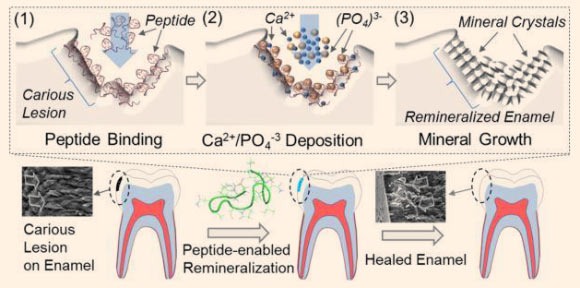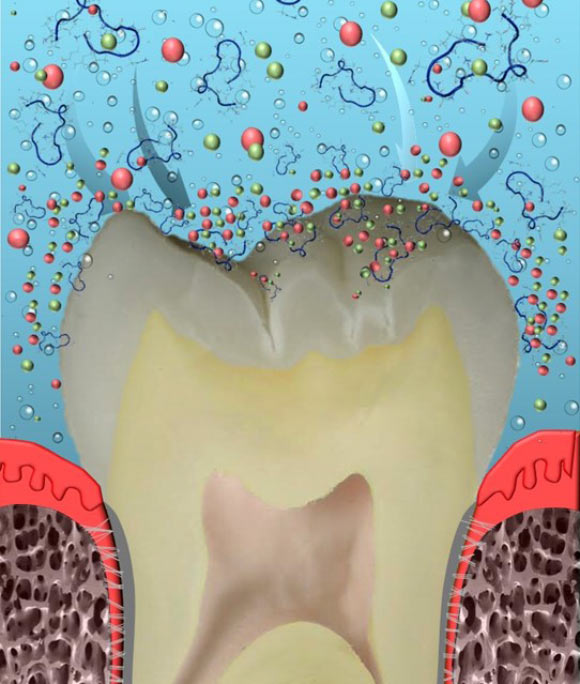A team of scientists at the University of Washington has developed a new dental product that uses protein amelogenin-derived peptides to remineralize tooth enamel and treat cavities.
Dental cavities affect nearly every age group and they are accompanied by serious health concerns, according to the World Health Organization.
Additionally, direct and indirect costs of treating dental cavities and related diseases have been a huge economic burden for individuals and health care systems.
“Bacteria metabolize sugar and other fermentable carbohydrates in oral environments and acid, as a by-product, will demineralize the dental enamel,” said study co-author Dr. Sami Dogan, from the Department of Restorative Dentistry at the University of Washington’s School of Dentistry.
Although tooth decay is relatively harmless in its earliest stages, once the cavity progresses through the tooth’s enamel, serious health concerns arise. If left untreated, tooth decay can lead to tooth loss. This can present adverse consequences on the remaining teeth and supporting tissues and on the patient’s general health, including life-threating conditions.
Good oral hygiene is the best prevention, and over the past half-century, brushing and flossing have reduced significantly the impact of cavities for many Americans. Still, some socio-economic groups suffer disproportionately from this disease.
The prevalence of dental cavities in Americans is again on the rise, suggesting a regression in the progress of combating this disease.

Schematic illustration of peptide-guided biomimetic tooth repair technology. Image credit: Dogan et al, doi: 10.1021/acsbiomaterials.7b00959.
Taking inspiration from the body’s own natural tooth-forming proteins, the team has come up with a way to repair the tooth enamel.
The study authors accomplished this by capturing the essence of amelogenin — a protein crucial to forming the hard crown enamel — to design amelogenin-derived peptides that biomineralize and are the key active ingredient in the new technology.
The bioinspired repair process restores the mineral structure found in native tooth enamel.
“These peptides are proven to bind onto tooth surfaces and recruit calcium and phosphate ions,” said study co-author Deniz Yucesoy, a doctoral student at the University of Washington.
The peptide-enabled technology allows the deposition of 10 to 50 micrometers of new enamel on the teeth after each use.
Once fully developed, the technology can be used in both private and public health settings, in biomimetic toothpaste, gels, solutions and composites as a safe alternative to existing dental procedures and treatments.
The technology enables people to rebuild and strengthen tooth enamel on a daily basis as part of a preventive dental care routine. It is expected to be safe for use by adults and children.
“Remineralization guided by peptides is a healthy alternative to current dental health care,” said study’s lead author Professor Mehmet Sarikaya, from the Department of Chemical Engineering and the Department of Oral Health Sciences at the University of Washington.
The team’s results appear in the journal ACS Biomaterials Science and Engineering.
_____
Sami Dogan et al. Biomimetic Tooth Repair: Amelogenin-Derived Peptide Enables In Vitro Remineralization of Human Enamel. ACS Biomater. Sci. Eng, published online March 9, 2018; doi: 10.1021/acsbiomaterials.7b00959








